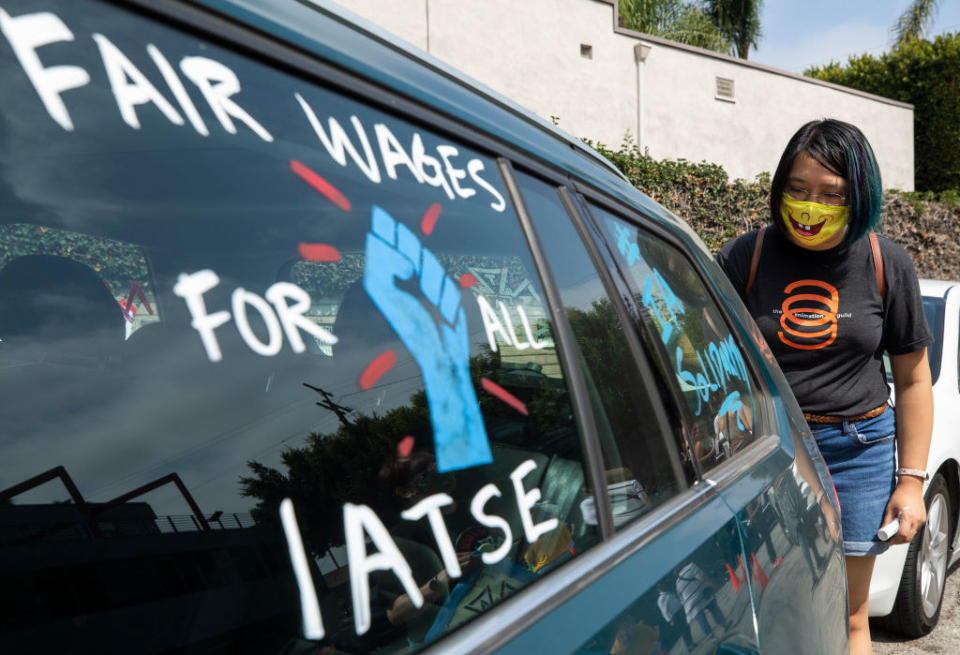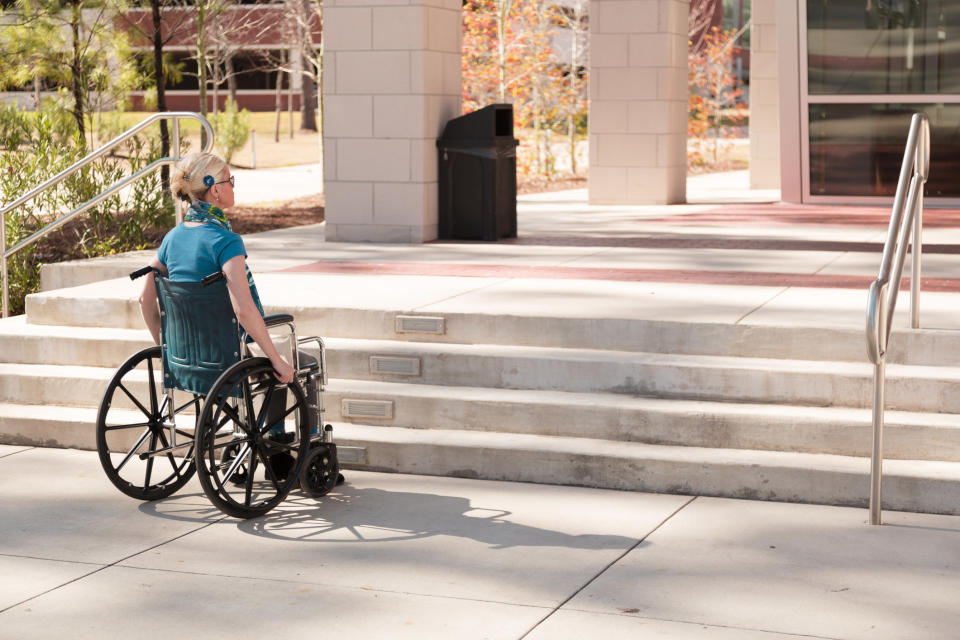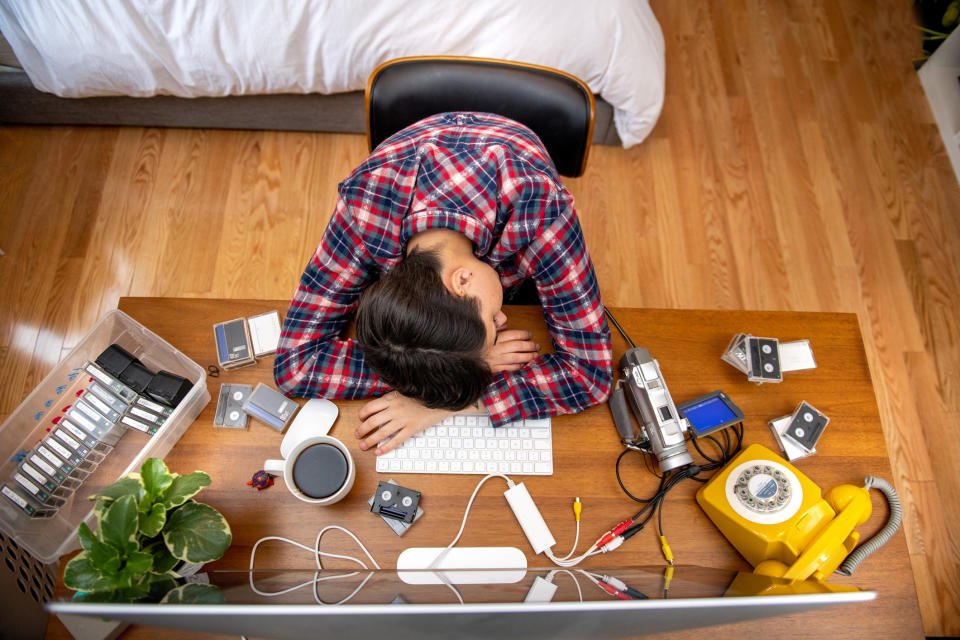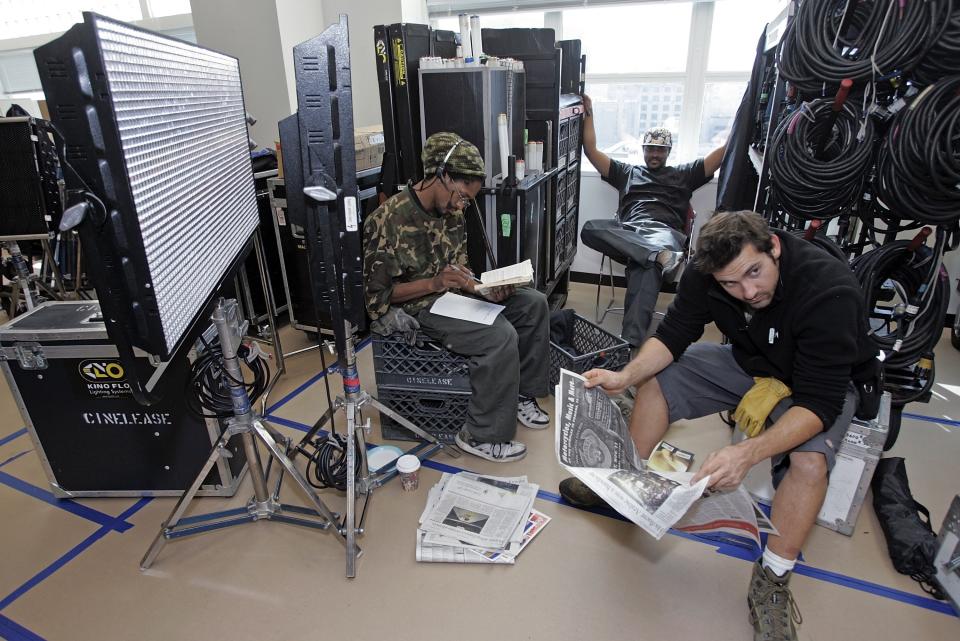People Who Worked On TV And Movie Sets Are Sharing Their Worst Experiences, And The Stories Are Wild
Over this past year, the film crew union, International Alliance of Theatrical Stage Employees (IATSE), has been negotiating a new agreement with the Alliance of Motion Picture and Television Producers (AMPTP) that would increase wages and provide reasonable resting time for union members.
IATSE members voted nearly unanimously in favor of authorizing a strike if an agreement cannot be made. Negotiations have stalled and, if their requests are not met, the IATSE union president now has the ability to shut down film and television productions across the country.
In light of this historic vote, we asked film and television crew members of the BuzzFeed Community to share their worst experiences on set.
Note: We cannot confirm the accuracy of these stories — people are speaking allegedly from their own experiences.
Here are some of the most shocking responses:
1."We were working in a complete downpour on a set that was at the top of a steep muddy embankment. Our boom operator fell and broke his arm in the morning. Multiple calls were made to the higher-ups, including the studio, about the unsafe conditions, but the producers pacified them and lied about fixing the problems. The last shot included two small kids; I told my boss that I was worried it was too dangerous for them well in advance, but no one took me seriously. Safety on set is a joke; the people who are supposed to take care of it don't if it means they can't finish their movie."
—Anonymous
2."I was working as a set [production assistant] over the summer and started feeling sick one day at work. After being out sick for a few days, because I wasn’t feeling better, I woke up to a text from one of the assistant directors saying that they wouldn’t need me for the rest of the shoot and I could turn in my walkie. So basically I got fired for being sick."
—Anonymous
3."Where do I even start? I totaled not one, but two cars falling asleep driving home from set. I missed the last hospital visits, funerals, and weddings of many family members and close friends. My longest 3 days of work were 29 hours, 27 hours, and 26 hours, each the last day of various TV seasons. I never drink water at work because I need to go at least eight hours between bathroom breaks. I was fired from a job because a certain A-list actor on set was in a bad mood."
—Anonymous

4."The second day of a high-profile movie was a 22-hour day. We had multiple child actors who are supposed to have very strict rules about how long they can work. At the age they were, it should've been about 9 hours, but they ended up working at least 12 because the director and others would guilt them into thinking they were letting other people down by going home and ending our day."
—Anonymous
5."It's a completely normalized culture of overwork where being disabled has excluded me, and many others, from many jobs because employers say they don't think people like me can cope with the grueling hours they add to the contract. Getting access for wheelchairs on set is also a huge issue. Companies never account for this and publicly say they have no idea why people with disabilities are so severely underrepresented in the industry."
—Anonymous

6."I worked as an unpaid production assistant on an indie set. One of the longest, roughest days was when we filmed in a house in Paterson, New Jersey, starting at 7 a.m., and were only supposed to go until 9 p.m. We worked for more than six hours before I could have a bathroom break. By 11 p.m. we were still filming, the last bus back to NYC gone, and no other way to get back. Luckily, one of the actors offered to drive some of us to Staten Island. So basically, the [executive producer] was happy to leave people working for her, for free, abandoned in the middle of the night in Paterson, New Jersey."
7."Productions will bring in specialty caterers that ONLY take orders for cast members, even if there's only one on set, but crew members can't even sit down for a half hour to eat."
—Anonymous

8."I was working on a very popular tattoo show. Cast would show up on set with weapons, despite the numerous warnings for them to leave them at home. This would delay our days. The amount of times the weapons needed to be confiscated was absurd. It truly made the crew feel unsafe."
—Anonymous
9."I worked as a post-production assistant on a major blockbuster a few years ago. I made $700/week, flat rate, no matter how much overtime I worked. I worked from 9 a.m. to 2 a.m. every single day in the month of May that year, resulting in me getting an upper respiratory infection. I was out sick for a week with a high fever. When I came back, it was right back to it. When someone higher up pushed the post super and a producer about it, they admitted that there had been money in the budget for a second production assistant the whole time. I nearly killed myself for that job and could barely afford rent."
—Anonymous

10."I have seen countless instances of people being asked to do things that are well above their pay grade and skill level. Once, an office PA, getting paid minimum wage, was asked to do a union job that should have been done by someone skilled who is paid way, way more. I liked my boss, but I told him that I would report it to the union if they made her do it, and all he could do is shrug."
"This is a constant problem of people being used and exploited just to make a piece of entertainment and productions not abiding by union rules."
—Anonymous
11."Did 18- to 19-hour days on a show that was filming on a Universal Studios stage, meaning that it was a controlled, indoor environment and there was no reason for it to drag out like that. But because of the long hours, call kept getting pushed. So, we were going home at 7:30 a.m. on a Saturday, only to have to be back on set on Monday at 7:30 a.m.."
—Anonymous

12."I was brought on a joint production to video double for one of the top actors in Hollywood. I was picked up by a casting agency in a European/Asian country and given the terms of my work. I was making about $300 a week, 14- to 16-hour days doubling for a guy who was making $3 million–$5 million on the film at a minimum. Those hours were far beyond labor laws in Hollywood, and the money wasn't even close to minimum wage in the USA."
—Anonymous
13."I remember needing medical attention and being asked if I could finish out the show. Never mind I had a concussion and was seeing stars. I was told if I left I wouldn’t be paid and not to bother showing up the next day, as they could find someone who wouldn’t complain about a head bump."
—Anonymous

14."Crews have no control over the hours or the days worked; everyone's at the mercy of the higher-ups. Unit production managers are supposed to control that kind of thing — keep the set in line, corral the directors and DPs, manage the money. In nearly nine years in this industry, I've never once seen a UPM tell a director that they have to stop because they're going too late or asking for ridiculous things."
—Anonymous
15.And, "The longer the hours for the rest of the crew, the longer the hours for caterers who will get to set as early as 1 a.m. so they can serve in time. Then, they have to stay open for hours to accommodate getting food out to all the crew who can't break and get their own food, only to spend another six hours cleaning up and prepping for the next day. They usually work up to 20-hour days. And not all catering staff are union, so they get paid pittance to have to deal with all this."
—Anonymous

Note: Submissions have been edited for length and/or clarity.
